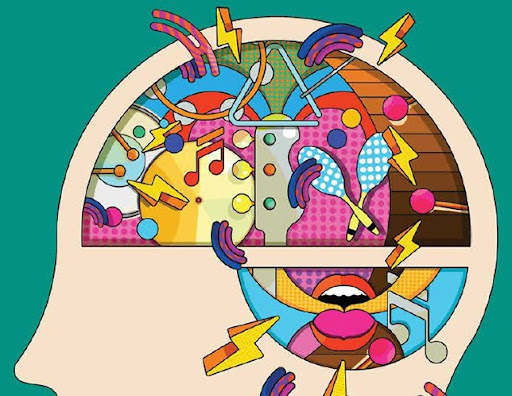Musics Effect On The Brain
February 5, 2022
Whether it be pop music, classic rock, or death metal, everyone has a set group of artists or genres of music they go to when they are feeling blue. Music is a universal connection that speaks directly to the human spirit. It’s comforting to know that music not only feeds the soul, but the brain as well.
There is a science when it comes to researching how the nervous system interacts with music. According to Frontiersin.org, an experiment performed by the University of Helsinki, they discovered that music can actually improve cognitive performance. Researchers took several groups of test subjects and had them listen to different combinations of music genres while they studied for a test. What they found is that more “pleasurable” music, with faster tempo, allowed for their subjects to improve at processing speed. While pleasurable and “neutral” music, more instrumental, allowed improvements in the memory.
It should come to no surprise that music can significantly increase dopamine levels in the brain. The Power of music reports that this increase in dopamine also reduces anxiety and helps combat against cortisol, the stress hormone. Music helps lower blood pressure, reduce migraines and headaches, and improve sleep. These benefits are often why many are offered music therapy as a way of treatment for those who struggle with their mental health and those with special needs. It allows for these individuals to express themselves in a way that doesn’t have to be just words.
Picking up an instrument has its own benefits separate from just listening to music as well. Children who have learned how to play an instrument have shown to have improved brain growth, language skills, math skills, memory, coordination, and social skills. This is because music is also very logical, being able to read music is an impressive task and skill that requires a lot of intelligence. In fact, an area of the brain known as the corpus callosum shows to increase in size when listening to music . What this change does, is allow for “enhanced communications between your logical and emotional self,” stated The Power of music. The auditory cortex, the part of the brain that is responsible for hearing, increases as well.
So to all the music lovers out there, keep those headphones in. Continue to jam out in garages, bedrooms, or in the shower. Go to those sold out shows, small concert gigs, and school performances. Music not only brings people together, but also helps improve the quality of life!

